Why have co-curricular activities almost disappeared from modern campus life?
One main reason behind pitiful academic conditions of our campuses is a lifeless, barren and unacademic environment
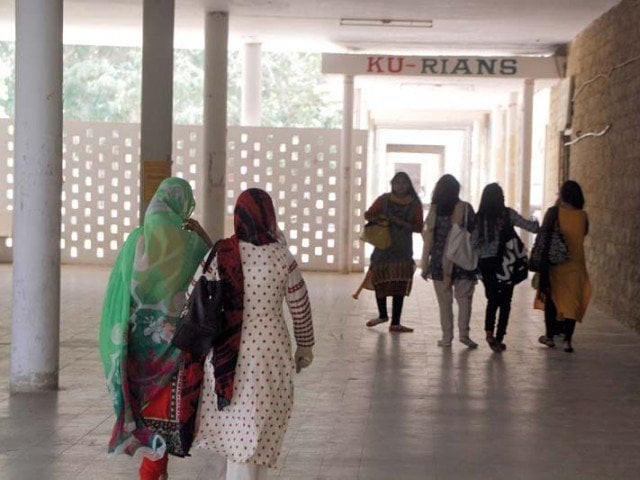
University of Karachi. PHOTO: EXPRESS
An abject decline in the standards of academic institutions in Pakistan is an established fact as academic excellence has never been a priority of our system. When the world is becoming more and more skill-oriented, our local academic system has depreciated even further. Consecutive annual reports by the Federal Public Service Commission (FPSC) also portray a dismal picture. A majority of the reports say that candidates appearing in competitive exams lack in language, thinking and analytical skills, coupled with a strong disposition for rote learning. What is going wrong?
BNU’s graduating students strut their stuff
One of the main reasons behind the pitiful academic conditions of our campuses is a lifeless, barren and unacademic environment that we have been offering to our students for years. Besides an out-dated and static curriculum, flawed examination system, asymmetric organisational communication, and a non-existent mechanism to pick expert leaders and teachers, lack of CCAs is a major factor for the slide down in our learning standards. Moreover, the contemporary culture of obtaining high scores in exams has also effectively rendered CCAs irrelevant.
It is important for students to have a balanced personality. Our system, on the other hand, forces them to emphasise more on ensuring good marks, even if they fail to become productive humans. Not just good marks, students have to have the confidence and personality to face the world once they leave their campus premises.
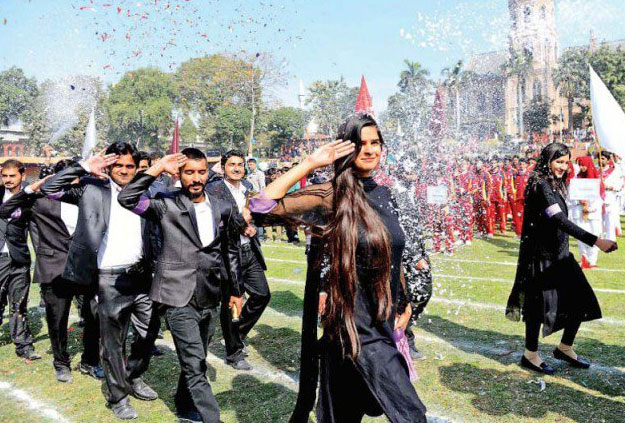 Government College University. PHOTO: EXPRESS
Government College University. PHOTO: EXPRESSCo-curricular activities, in reality, instil confidence in students by improving their mannerism, modesty, truthfulness, health, and respect for the law. Regrettably, not many local academic institutions regularly organise activities, for instance, social welfare and literary societies, sports clubs, arts and music classes and student committees for organising events, tours and art and musical shows.
How long will decision-makers take to realise that CCAs are incredible tools to instil leadership skills, a sense of responsibility and citizenship, teamwork, and resilience, among many other notable traits! By shunning them, we have deprived our young generation of the limitless possibilities of discovering and developing their innate talents.
Students of Khyber Girls Medical College organise fun carnival
CCAs produce great minds with a sense of moral, ethical, social and aesthetic standards. These activities provide a positive means of expression for blocked energies and concepts with national pride. Sports, literary festivals, art and music plays have a soothing effect on the human mind and soul.
Thanks to the culture of student societies, there was a time when Government College Lahore (now Government College University Lahore) produced prominent writers, musicians, public intellectuals, civil servants, and other professionals in the country. Even in other colleges and schools, once co-curricular activities were a compulsory part of campus life. Today, our academic institutions hardly have institutionalised bodies for making such activities possible.
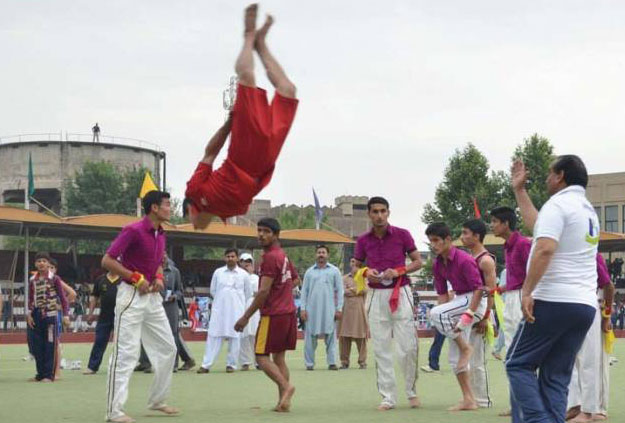 A sports event at Qayyum Sports Complex, Peshawar. PHOTO: EXPRESS
A sports event at Qayyum Sports Complex, Peshawar. PHOTO: EXPRESSIn 2015, I conducted a survey in Rawalpindi Division to evaluate the frequency and quality of CCAs being undertaken in local colleges. An online questionnaire was circulated among principals with the help of directorates. Only 38 per cent of the colleges could claim that they had student societies to conduct CCAs. Their responses later in questionnaire clarified that there was hardly a genuine functioning society.
The findings of the survey with a proposal to strengthen CCAs in campuses were shared with Irfan Ali, the then-higher education secretary, who later extended maximum support to the idea. However, operationalised through the bureaucratic machine, the very idea became another impracticable directive.
Paintings of HU students put on display
I have analysed dysfunctionality of the Higher Education Department (HEDP) in detail. Two main factors, over-centralisation and lack of community participation, kill initiative and spontaneity – the spirit of CCAs activities. Unless teachers and students are motivated and the department functions as a facilitator, a culture of such activities cannot be fostered in the campuses.
CCAs can only be brought back to our campuses, through collective efforts. Nevertheless, the question remains, how this should be achieved?
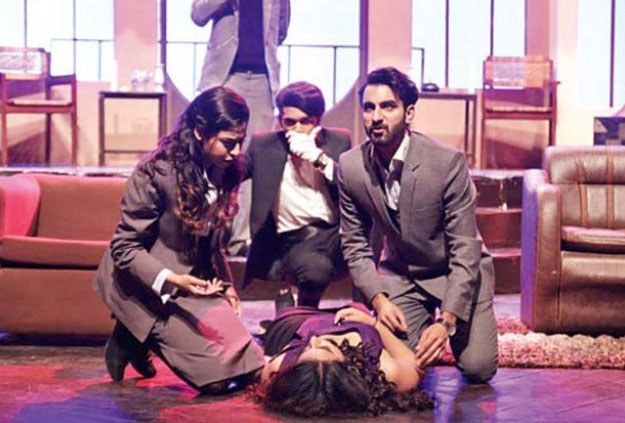 Beaconhouse National University students during a theatre performance. PHOTO: EXPRESS
Beaconhouse National University students during a theatre performance. PHOTO: EXPRESSBased on my personal experiences and shared observations, I offer a few proposals grounded in a simple principle: Identify the creative core and help it to grow. In every institution, there are (at least) a few people who are eager to contribute to their institution. However, they also become part of a dull campus routine or switch over to personal pursuits. Some steps can be taken to unleash this very creative core.
Identifying creative core: Identify at least one creative and motivated person in the academic institution and make him or her responsible for organising co-curricular activities.
Criterion for focal persons: The focal person should have a genuine interest in co-curricular activities while he or she must be conversant with the Information Communication Technologies (ICTs).
Establishing societies: Through motivated persons, societies of students should be established in campuses. Such societies should be encouraged or facilitated to have their own constitutions after getting them approved by their campus councils.
Guiding principle of activities: Focus on developing reading, writing, speaking and thinking skills amongst students. Teachers’ roles should be as facilitators for arranging student-centered activities.
PERs and co-curricular activities: The department should recognise contribution towards co-curricular activities as ‘workload’ and it should be made part of annual evaluation reports to incentivise such activities.
Jamshoro students find creative ways to show everyday lives
Restoring tutorial periods: Weekly one-hour tutorial period must be re-introduced in every college. The societies should make arrangements to utilise this time for various activities.
Career counselling: Through networks of the creative core, capacity-building opportunities for learning and exposure should be explored and made available for students.
Inter-institutional connectivity: The Internet can be used to connect all such local societies over a virtual space. A connected web-platform should allow inter-connectivity and interaction of students. The societies of different colleges should be encouraged to upload their activities on this platform.
Official support: Guidance can help to overcome resistance or inertia caused by the lethargic, unproductive masses. However, the role of HEDP should be to encourage and facilitate instead of micromanaging.
Such proposals are open for debate and refinement. Nonetheless, there is a little talk amongst educationists over the usefulness of CCAs. It is unfortunate that CCAs are not being taken seriously in most of our academic institutions in Pakistan. A vast majority of them have no facilities for such activities when they have a huge responsibility on their shoulders to help students develop their characters and personalities.
Shahid Anwar is a social and political analyst based in Islamabad.




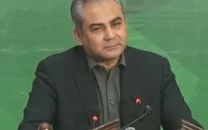

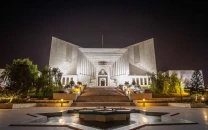












COMMENTS
Comments are moderated and generally will be posted if they are on-topic and not abusive.
For more information, please see our Comments FAQ